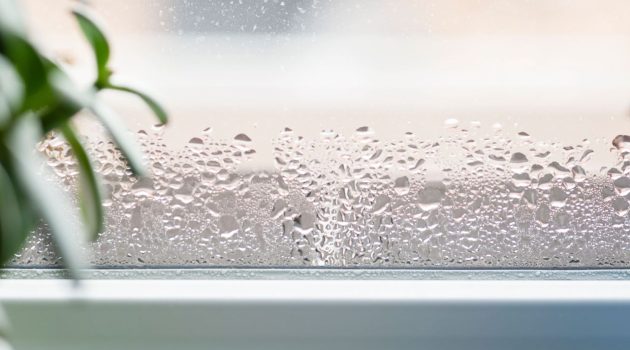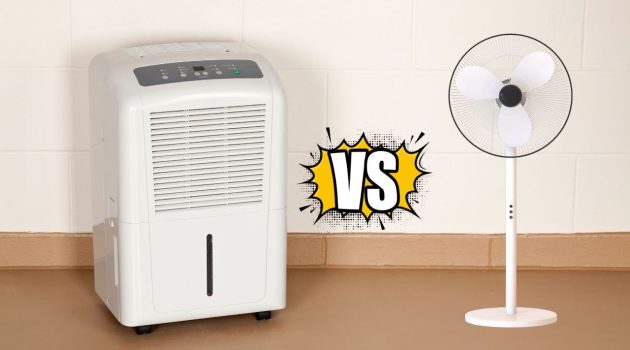Dehumidifiers are essential for maintaining a comfortable and healthy living space by removing excess moisture in the air.
However, sometimes your dehumidifier may start to produce loud noises, which can be both annoying and concerning.
In this article, we’ll explore some of the common causes of a noisy dehumidifier and provide you with solutions to help you restore peace in your home.
A noisy dehumidifier may result from different factors, including loose internal components, uneven placement, or a clogged filter.
To best understand why your dehumidifier is making loud noises, diagnosing the problem and addressing it appropriately is essential.
With a little investigation and the correct approach, you can effectively troubleshoot and restore your dehumidifier to its optimal performance.
1. Common Causes of Dehumidifier Noise

Faulty Compressor
A common cause of noise in a dehumidifier is a faulty compressor.
The compressor is responsible for pumping the refrigerant through the system, and if it’s damaged or not functioning correctly, it can create loud noises like buzzing or clicking.
Listen closely to the sound to determine if the compressor is the issue. If it’s coming from the back of the unit where the compressor is located, consider repairing or replacing it.
Damaged Fan Blade
The dehumidifier’s fan blades pull air through the unit, helping to remove moisture from the air.
If the blades are damaged or bent, they can create an imbalance, causing the fan to spin unevenly and produce a loud noise.
Check the fan blades for any visible damage, and if you find any, consider replacing them to restore your dehumidifier’s quiet operation.
Noisy Fan Motor
A worn-out or faulty fan motor is another possible cause of a noisy dehumidifier.
If you hear a constant humming or whirring sound, it could be a sign that your fan motor is struggling.
Unfortunately, this issue often requires professional help, as repairing the fan motor independently can be challenging.
Rattling Sound from Loose Parts
Loose parts inside your dehumidifier can create a rattling sound. This can be caused by dislodging nuts, screws, or other internal components or no longer securely fastening.
To resolve this issue, make sure to:
- Check for any loose nuts, screws, and components inside the unit
- Ensure all covers are tightly closed and secure.
Vibrations from Uneven Placement
If placed on an uneven surface, your dehumidifier may produce vibrations and noise.
These vibrations can cause parts within the unit to wobble, creating a loud, annoying noise.
To eliminate this issue, ensure that your dehumidifier is placed on a flat, stable surface, and consider using rubber feet or padding to reduce vibrations further.
READ MORE: 10 Best Rated 30 Pint Dehumidifiers for Your Home
2. Dehumidifier Troubleshooting
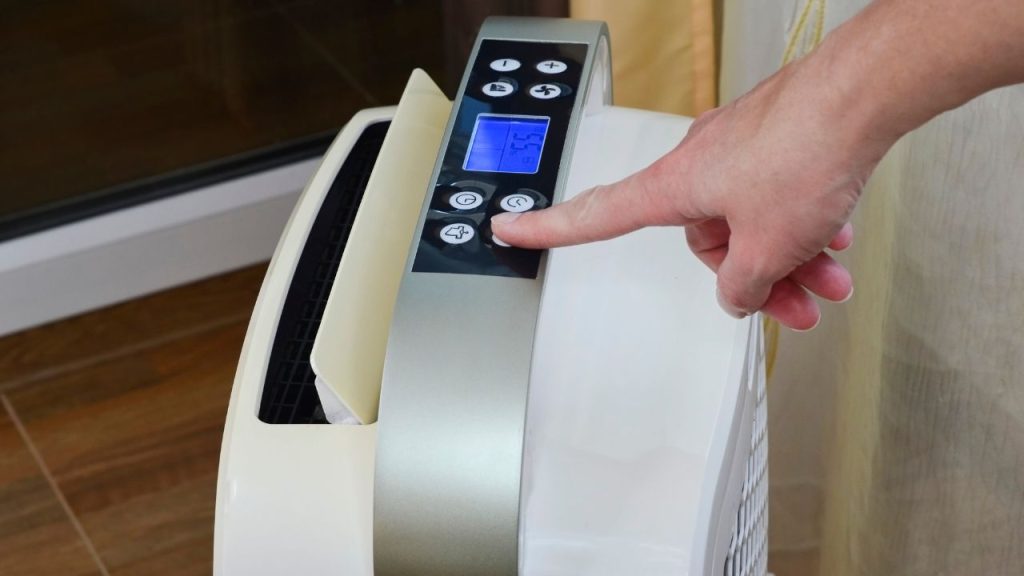
Inspecting and Cleaning Components
A noisy dehumidifier can be quite annoying, but with a little troubleshooting, you can fix it.
First, inspect your dehumidifier’s components for any dirt or debris gathered over time.
A simple cleaning can solve the problem. Unplug the unit and remove any visible dirt from the outer components.
A vacuum cleaner can remove dust and debris from the carpet or surface beneath the unit.
This will not only resolve the noise issue but also improve the dehumidifier’s efficiency by maintaining the optimal humidity levels in the room.
Checking for Loose Screws and Parts
Loose nuts, screws, and other parts can cause buzzing or rattling noises in your dehumidifier.
Carefully examine the unit for any loose components, and tighten them as necessary.
Additionally, check the dehumidifier’s covers to ensure they are correctly closed, which can also contribute to unwanted noise.
Testing the Fan Motor and Compressor
Next, for issues, assess the dehumidifier blower wheel, fan blade, and dehumidifier fan motor.
Try spinning the fan blade by hand to ensure it moves freely and isn’t rubbing against the fan housing.
If it’s functioning correctly and not making contact with the housing, use a multimeter to check whether the fan motor is receiving power.
If the fan motor isn’t getting power, you may need professional assistance to repair or replace it.
Examining Air Filters and Coils
Clogged air filters and coils in your dehumidifier can lead to a buildup of dirt and debris, which can also cause noise issues.
Regular maintenance, such as cleaning or replacing the air filter, is crucial for your dehumidifier’s long-term efficiency and quiet operation.
To check and clean the air filter, remove it from the unit and inspect it for dirt accumulation. If it’s clogged, you can clean it with a vacuum or replace it with a new one.
Additionally, clean the dehumidifier’s coils with a soft brush or cloth to remove any dirt buildup.
READ MORE: 10 Disadvantages of a Dehumidifier: Essential Drawbacks to Consider
3. Reducing Dehumidifier Noise Output
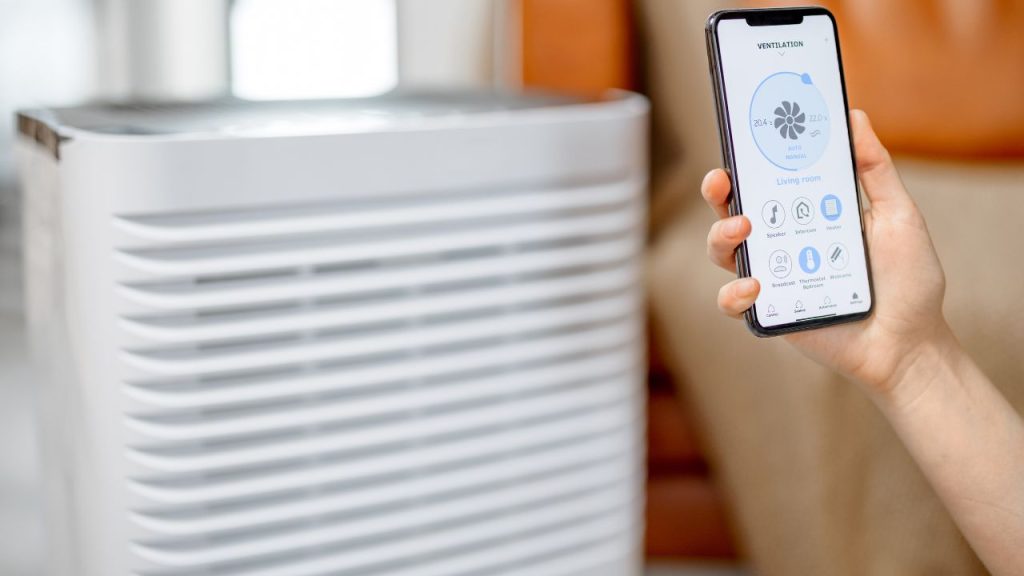
Adjusting Settings for Lower Noise
You should start by checking the settings to reduce the noise output from your dehumidifier.
Many dehumidifiers offer various modes and fan speeds, so try adjusting these to find a quieter setting that effectively removes moisture from the air.
Moreover, keep an eye on your dehumidifier’s filter. A clogged filter can cause the fan to work harder and create more noise.
Clean or replace the filter regularly to keep your device running smoothly and quietly.
Ensure your dehumidifier is placed on an even and stable surface. Wobbly placement can lead to vibrations and increased noise.
You should also give your dehumidifier enough clear space around it to prevent wind turbulence or interference with its performance.
Implementing Noise Reduction Techniques
Additional noise reduction techniques can help minimize the noise emitted by your dehumidifier. Here are some ideas:
- Use a carpet or mat underneath your dehumidifier to dampen the vibrations and, consequently, the noise.
- Check the dehumidifier’s internal components (e.g., fan blades and coils) for any loose or damaged parts that may cause rattling, clicking, or buzzing sounds, and tighten them up or replace them as needed.
- Regularly inspect and clean your dehumidifier’s inner workings to avoid dirt and debris from causing extra noise.
- Consider adding oils suitable for your dehumidifier’s compressor to reduce heat-related noise. Consult your unit’s manual or the manufacturer for the best oil type and usage instructions.
READ MORE: What Devices do you Need to Build a House in VR
4. When to Replace or Repair Your Dehumidifier
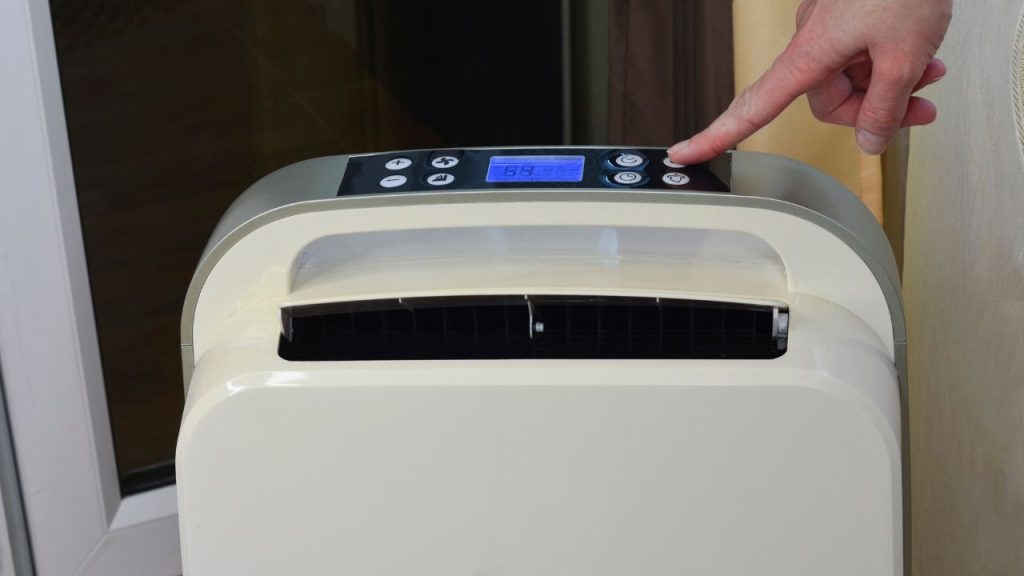
Assessing Damage and Cost-Effectiveness
When your dehumidifier starts making loud noises, it’s essential to assess the damage and determine whether repairing or replacing the unit is the most cost-effective option.
If you’re facing minor issues like loose nuts, faulty air filters, or an unstable bucket, you can quickly fix these problems without spending much on repairs.
However, suppose the dehumidifier is damaged beyond repair or has significant faults like a defective power supply, faulty fan motor, or issues with the refrigeration system.
In that case, replacing the unit entirely might be more cost-effective.
To determine the best course of action, consider the age of your dehumidifier and how often you experience issues.
If your unit is relatively new and the problems are minor, repair might be a better choice. But a replacement could be more cost-effective if the unit is old and constantly giving you trouble.
Consulting with a Professional
If you need clarification about the extent of the damage or whether it’s worth fixing your dehumidifier, it’s a good idea to consult a professional.
They can assess the problem, provide a diagnosis, and recommend whether a repair or replacement is necessary.
A professional can also ensure that the faulty parts are properly fixed or replaced so your dehumidifier remains in working order.
READ MORE: 10 Tips for Bohemian Style Decor in Your Hipster Home
5. Maintaining Dehumidifier Efficiency
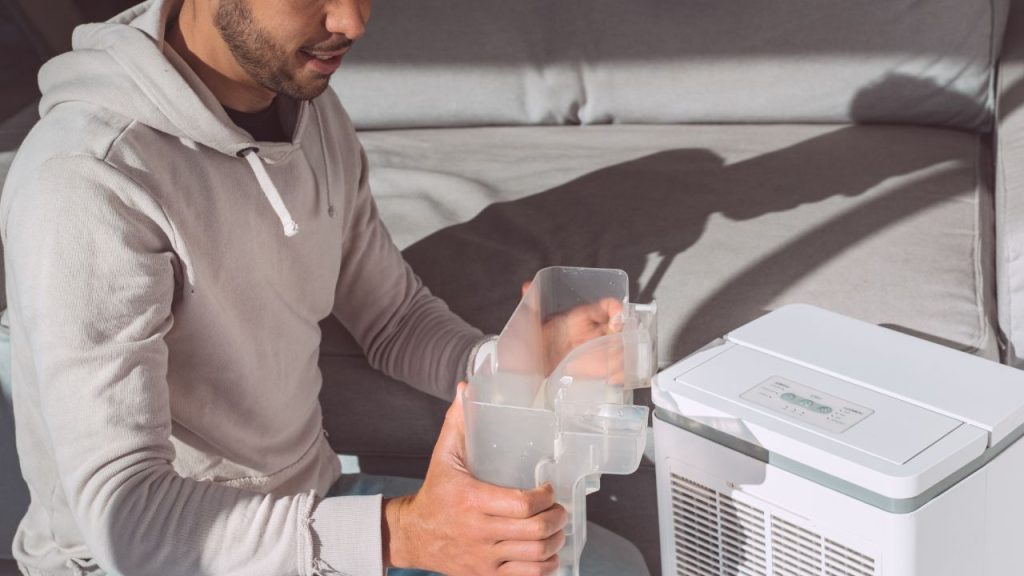
Regular Cleaning and Filter Replacement
To keep your dehumidifier working efficiently, it’s crucial to clean it regularly.
Dust and debris can accumulate on the internal parts, like the blower wheel and other components, which might cause excessive noise during operation.
Make sure you:
- Clean the air filters: Remove the filters from the unit and gently clean them with a soft brush or vacuum. This prevents dust buildup and ensures proper airflow.
- Check the water tank: Empty it regularly and thoroughly clean it to avoid mold growth from excess moisture.
- Inspect other components: Look for loose or out-of-place nuts, screws, or plastic parts leading to vibration and oscillation noises.
Monitoring Humidity Levels
To ensure your dehumidifier is running efficiently and not causing loud noises, it’s important to monitor the humidity levels in your space.
Keep the following tips in mind for optimal performance:
- Set the relative humidity: Find a suitable level for your space, typically between 40-60%. This prevents the dehumidifier from running continuously, reducing the chance of noise from overuse.
- Check clearance around the unit: Make enough room around your dehumidifier for proper airflow, at least 12-18 inches. This ensures the unit works smoothly, reducing noise as a result.
- Monitor the water tank: Keep an eye on it and empty it when it’s filled. This prevents the dehumidifier from overworking because not running with a full tank contributes to a quieter operation.
Maintaining your dehumidifier’s efficiency through regular cleaning and monitoring humidity levels can reduce the likelihood of loud noises and ensure its optimal performance.
READ MORE: Factors When Deciding to Remodel or Sell Your Old House
Frequently Asked Questions
Why is my dehumidifier crackling?
Your dehumidifier might crack due to loose internal parts, dirt or debris inside the unit, or a clogged filter. It’s important to clean and maintain your dehumidifier to prevent these issues regularly. Check for loose screws or nuts, and ensure all components are securely in place.
How can I make my dehumidifier quieter?
To make your dehumidifier quieter, try placing it on a level surface, ensuring the water bucket is stable, and cleaning the filter regularly. Also, leave adequate space around the dehumidifier for proper airflow and adjust the fan setting if it’s too high. If noises persist, consider purchasing a dehumidifier with a noise-optimized compressor.
Is a loud buzzing noise normal for a dehumidifier?
A loud buzzing noise may indicate that some components inside the dehumidifier are loose or need to be tightened. This noise can vary, so it’s essential to inspect your dehumidifier for any out-of-place parts and ensure everything is securely fastened.
How can I fix a squeaking dehumidifier?
A squeaking dehumidifier might be due to an unstable blower or fan. Inspect the blower wheel and make sure it turns freely without rubbing against the fan housing. If the blower wheel wobbles or is loose on the motor shaft, it may need to be replaced.
How do I know if my dehumidifier compressor is bad?
A faulty compressor may cause your dehumidifier to emit excessive noise, struggle to maintain the desired humidity level or stop working altogether. If you’ve ruled out other potential issues, such as a clogged filter or loose parts, it might be time to consult a professional to assess your compressor’s condition.
Are there any quiet dehumidifiers available?
Yes! Many dehumidifiers on the market prioritize noise reduction, particularly those with noise-optimized compressors. When shopping for a new dehumidifier, look for features such as lower decibel ratings, quiet operating modes, or specific noise-reducing technology. Reading customer reviews can also provide helpful insight into the noise level of a particular model.

